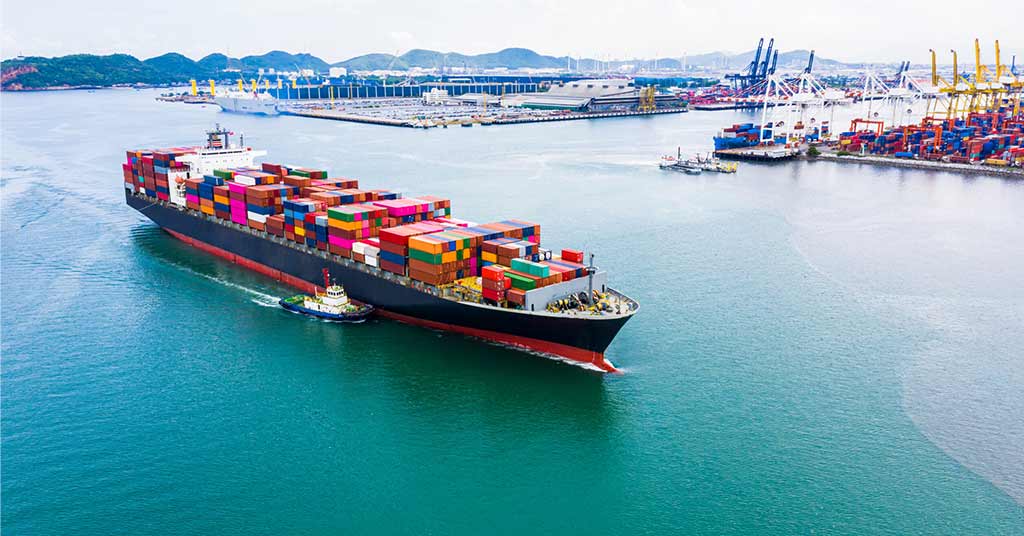Welcome To ChemAnalyst

Recently, U.S. Transportation Secretary unveiled a strategic attempt in order to improve the efficiency of transportation and strengthen Alaska's local economies. This initiative falls under the umbrella of the United States Marine Highway Program (MHP), and it involves the introduction of two new Marine Highway Routes: M-11 and M-79. These newly designated routes hold immense promise in expediting the movement of goods, bolstering supply chains, and providing a robust boost to the economies of Alaska, Pennsylvania, and West Virginia. The significance of these designations is that they open doors for eligible parties along these routes to apply for future grants from the U.S. Marine Highway Program.
The overarching objective of the MHP is to harness the potential of America's navigable waterways, alleviating congestion on land and introducing efficient transportation alternatives. The program is designed to uplift the nation's surface transportation system by collaborating closely with both public and private entities. This partnership model aids in the creation and sustenance of American jobs within U.S. ports, shipyards, and vessels, all while elevating the efficiency of the national supply chains. Marine Highway Route M-11, which spans Alaska, is sponsored by the Alaska Department of Transportation and Public Facilities. Covering over 6,500 miles, this expansive route incorporates coastal and river ports across southwestern and northern Alaska, stretching from the Aleutian Islands to the Canadian border. This region's history is steeped in waterborne transportation, with key waterways like the Bering Sea, Bristol Bay, the Arctic Ocean, and the Yukon-Kuskokwim River Delta serving as transportation hubs for centuries. The designation of the M-11 Route is poised to greatly enhance transportation options for these communities, presenting a diverse array of waterborne choices.
Turning to Marine Highway Route M-79, this route encompasses Pennsylvania and West Virginia regions. Co-sponsored by the Port of Pittsburgh and the Morgantown Monongalia Metropolitan Planning Organization, M-79 extends the reach of the Ohio River system by an impressive 250 miles, integrating the easternmost tributary rivers. The local business landscape in this area has expressed a keen interest in waterborne transportation as a reliable and economically viable alternative to other surface options. The M-79 designation is set to act as a catalyst for heightened operations, investments in infrastructure, and efficient freight movement, particularly for emerging commodities that are anticipated to utilize water transport in the future.
Introducing these new marine highway routes holds considerable promise for streamlining supply chains, with notable benefits for chemical industries. These sectors, heavily reliant on transporting raw materials, intermediates, and finished products, can leverage these routes to effect quicker, cleaner, and more cost-efficient transportation. This has the potential to reduce transit times and overall costs. The challenges associated with transporting hazardous materials over long distances and navigating congested road networks are also addressed, as these marine routes provide a safer and more sustainable mode of transportation. The availability of marine highways opens up versatile transportation avenues for chemical companies. This extended choice empowers businesses to select the most economical and dependable mode of transport for various types of chemical products, including bulk shipments and specialized chemicals. Given the substantial contribution of chemical industries to local and regional economies, enhancing transportation infrastructure through these marine highway routes can significantly streamline the movement of chemical goods, catalyzing economic growth in the areas directly influenced by these routes.
According to ChemAnalyst, this growth trajectory has the potential to trigger increased investments, job prospects, and overall economic advancement. Additionally, chemical companies often seek to access diverse markets for product distribution. These marine highway routes inherently enhance market accessibility, even for traditionally challenging regions to reach via road or rail. This increased accessibility holds the promise of facilitating the expansion of chemical enterprises into novel territories, unlocking new realms of possibility for these businesses.
We use cookies to deliver the best possible experience on our website. To learn more, visit our Privacy Policy. By continuing to use this site or by closing this box, you consent to our use of cookies. More info.
